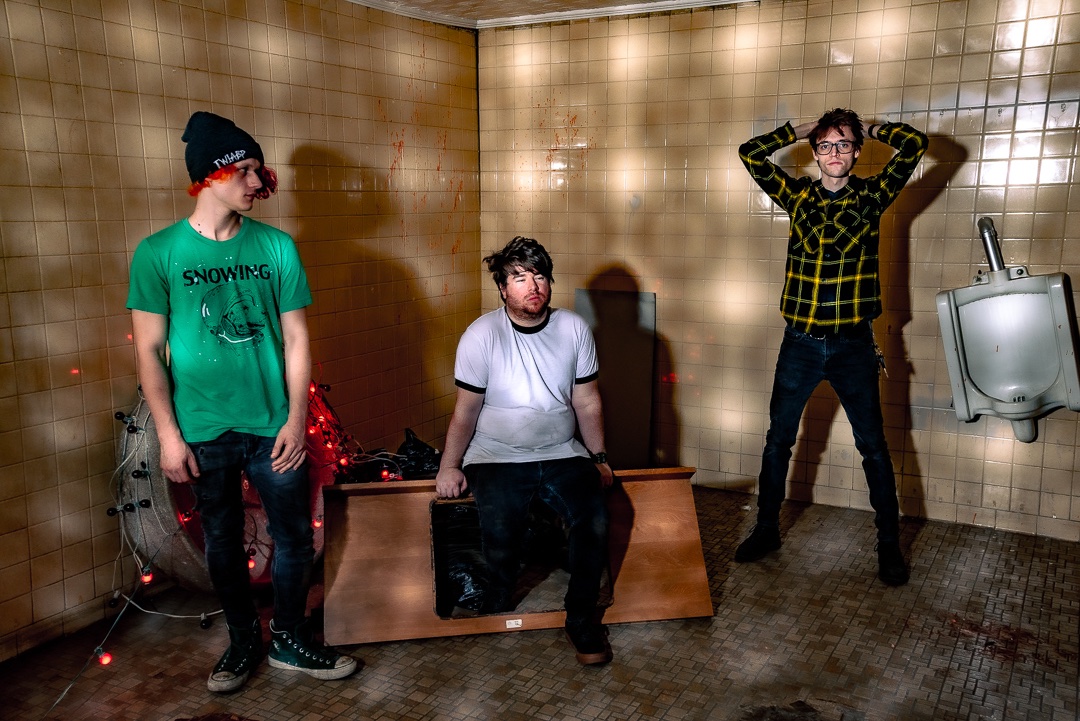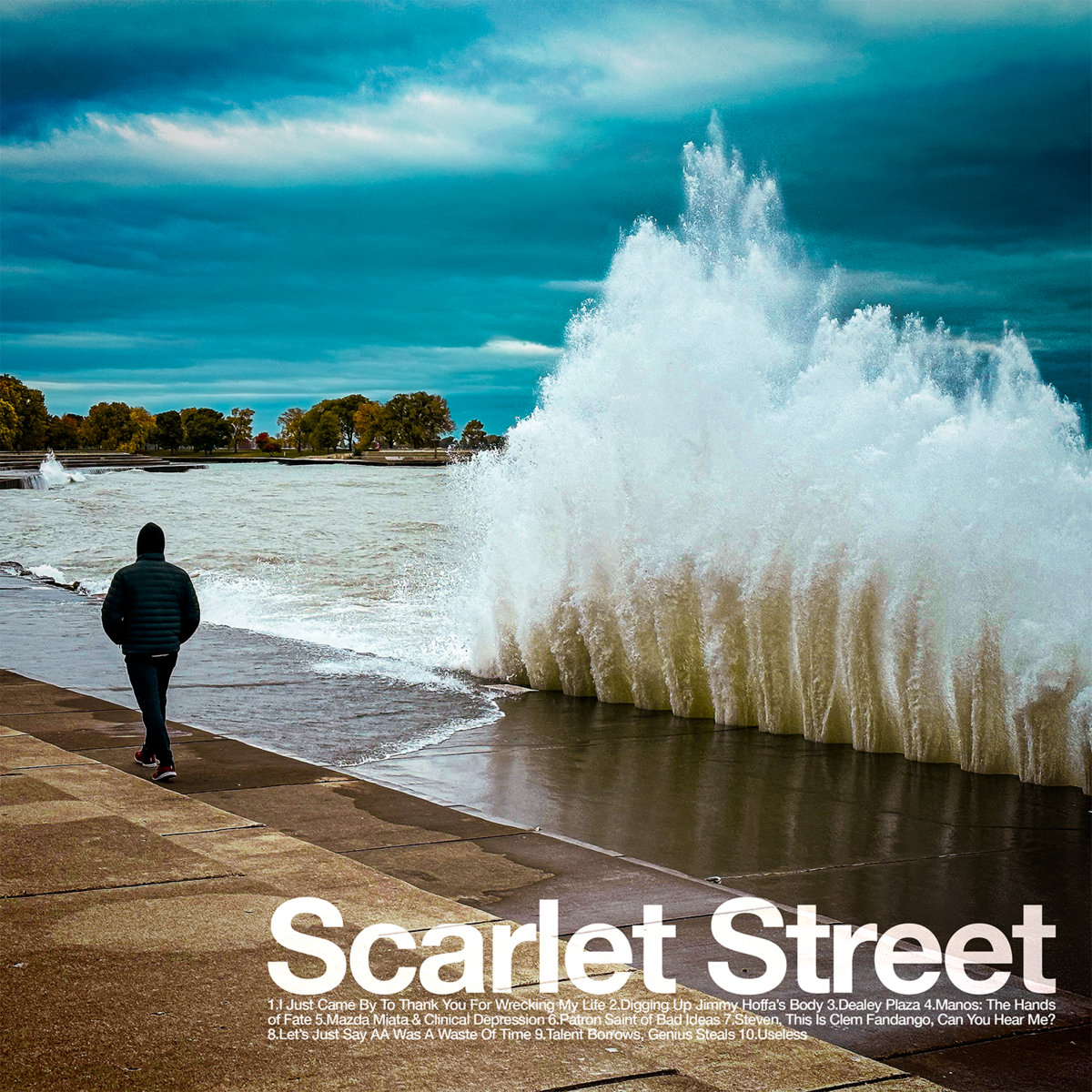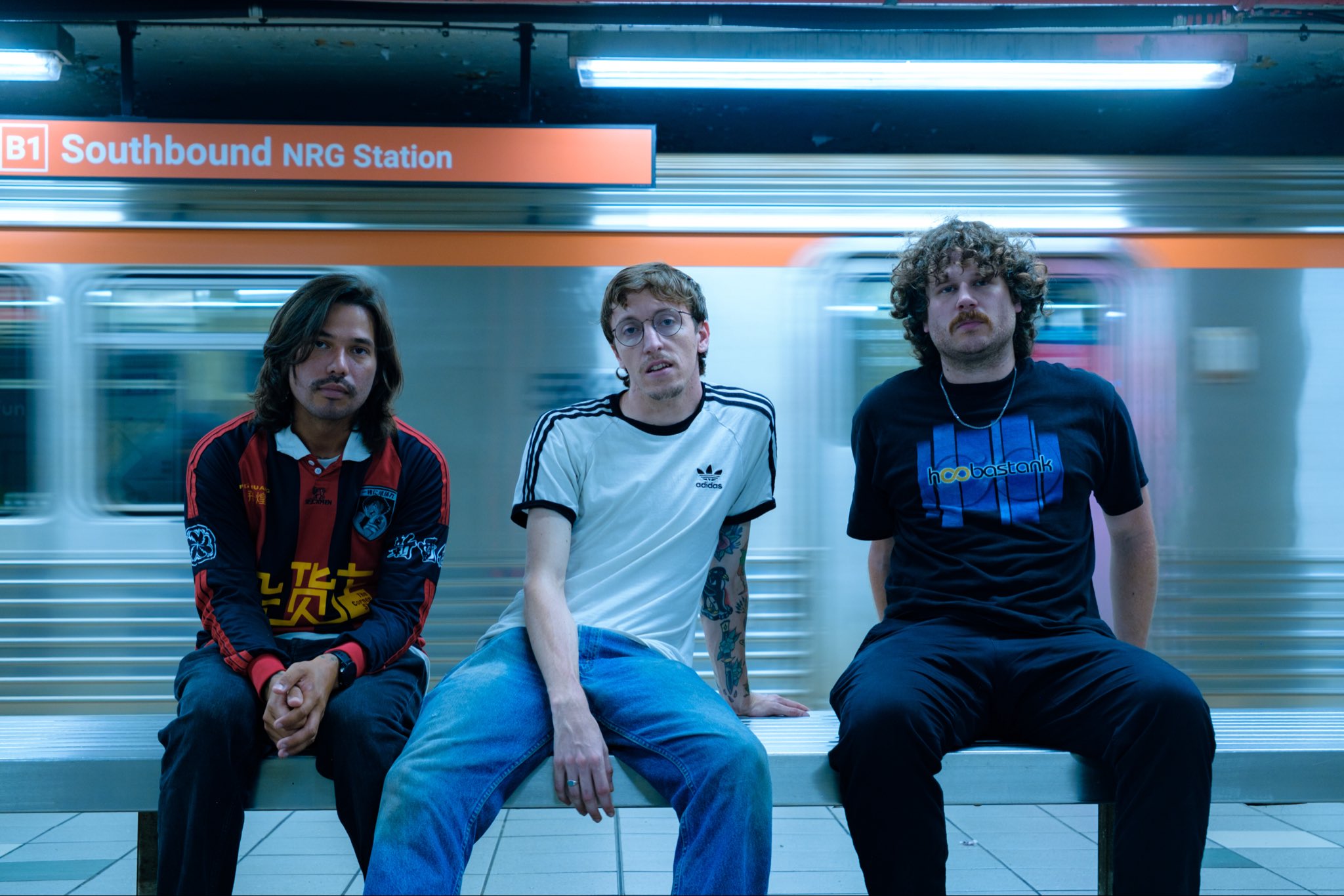Scarlet Street - Sound In The Signals Interview
 |
| Holden Mathis |
First, thanks for the interview.
Of course! Thanks for having us.
You recently announced your debut self-titled album. Can you tell me about the writing and recording process for the album?
The writing was a long, seemingly endless process. We had been kind of working on ideas off and on since 2019 with the goal in mind to be another EP after what is now “I Can’t Tell If I’m Insane…” but due to a few lineup changes, no consistent practice space and then eventually the pandemic, it really just wasn’t coming together organically.
We crossed paths with Jake in mid-2020 and once it was clear that he was the missing piece for us, we knew that we should kind of light a fire under ourselves and force a creative process, so we booked studio time at Sound Acres with Gary Cioni. A lot of what are now songs were just chord progressions, bass lines, chorus vocal melodies, and a collection of maybe 5 actually complete songs.
When we got to the studio, it was probably pretty obvious that some stuff needed to be worked out a little more, but luckily Gary is incredible at picking out what the strongest parts of a song and band are and he started throwing ideas at us. We had tons of songs that were probably twice as long as they should have been (notably, “Patron Saint of Bad Ideas” ran just shy of 6 minutes in its original form) which took the stress off of making “new” material and let us pick up leftovers and sprinkle them over some other songs.
2 songs were almost entirely written in studio; “Digging Up Jimmy Hoffa’s Body” and “Talent Borrows, Genius Steals” the latter Gary and Jake really took ownership of and turned it into something completely unrecognizable but much much better.
Do you have a favorite moment from the studio? Why?
I think all 3 of us were pretty amazed at how the song “Talent Borrows, Genius Steals” came out when Gary showed us the final mix. The song had changed so much from the demo, and I was extremely apprehensive about it, but being patient and seeing what Gary’s vision on it was, as well as Jake’s, was beyond anything I could have imagined. That whole “writing a song in studio” thing is something you see in documentaries with bands full of millionaires and really you should never rely on that, but that was the exception to the rule. It felt like all 4 of us had made some magic.
You released "Mazda Miata & Clinical Depression" when the pre-order was announced. What made you decide to pick that song as one of the lead singles for the album?
We knew before even recording that we were going to release a lot of singles leading up to the album, that’s just how the streaming-era works now and we have to play ball, but when we were driving back from NJ I think that was the song that all 3 of us thought best represented everything this band can do it 2 minutes and 30-some seconds. It’s the song that if someone asks “What does Scarlet Street sound like?” I’d show them. We wanted to save our single for last, and I think everyone is in agreement it’s the best Scarlet Street song they’ve heard (so far, at least)
I really like the song “Dealey Plaza”. At what point did you write that song in the album process?
Dealey was written quite a long time ago, 4+ years now. It was actually written on an acoustic guitar before any Scarlet Street music was released yet. We’ve been playing the song since our first ever show, and we had a rough recording of it but decided we couldn’t let that be the song’s final form. When we brought it to Gary he had zero notes on it, which made us feel very proud of ourselves.
One thing I really like about your music is that you have great, catchy punk rock songs with thought-provoking lyrics. What’s your general approach to writing lyrics?
I don’t really have one single approach, sometimes lyrics come to me from nowhere, for example; “And oh, I say there are good days and there are bad days and the bad days seem to happen quite a lot” came to me while at my really shitty warehouse job, in its entirety. I almost feel like I didn’t come up with that one it was just ‘given’ to me.
Others did come from a lot of writing, scratching out, re-writing, scratching out more, and just trial and error and I think that was something new I tried on this album, there’s an old adage of “Don’t strike when the iron is hot, strike to MAKE the iron hot” and that was kind of what I was trying to do and to my surprise I ended up with lyrics I enjoyed.
What were your lyrical and musical influences/inspirations for the album?
Lyrically, and I think it shows, Justin Pierre from Motion City Soundtrack has been a pretty big influence lately. I also take a lot of inspiration from Into It. Over It., The Smiths, Kevin Devine, Fall Out Boy and La Dispute and one of our local favorites The Dopamines. I also read a lot of Stephen King and watch a lot of documentaries and that combination just gets lyrics out of me somehow.
Musically, just about anything in the general spectrum of ‘alternative rock’ is our jam. I personally take a lot of influence from individual songs instead of bands as a whole. There’s so many songs where I bring it to the group and say “I want to write a song like this” or “I want to have a verse that feels like this” so for example; Stockholm Syndrome - Blink 182, or Things I Can’t Change - The Story So Far, or 1940s Fighter Jet - The Sidekicks. Not that there aren’t bands that we didn’t look to for this; Motion City Soundtrack, The Wonder Years, Fireworks, Armor For Sleep, Foxing, Four Year Strong, etc. Most of the music we listen to for inspiration we’ve found nearly 15 years after their heyday, we didn’t really grow up with this stuff believe it or not. It’s as new to us in the 2020s as it was to most people in the 2000s.
One thing that was actually super cool last year was getting to play with Signals Midwest, I think they rolled through Cincinnati in 2015 and I happened to be at that show and that was one of those watershed moments where I said to myself “I want to make music”. 2015 had a lot of those; Into It. Over It., The Sidekicks, and Diarrhea Planet all played our hometown roughly around the same time and it was like a spark for me.
The cover features an interesting photo. Where did that photo come from? Can you tell us more about it?
My wife took this photo at Lincoln Park in Chicago. The waves from Lake Michigan were smashing the seawall and people just kept walking by like it was nothing. The man in the photo had walked by probably 15 times and much closer most of them. We just thought it was so odd to watch people so close to chaos yet so calm about it.
We’re Trying Records is releasing both vinyl and cassettes for the album. What made you decide to sign with them for the release?
We’ve actually had a giant chip on our shoulder about signing to a label. We had seen so many of our peers get burnt by labels and really had it set in our mind that we didn’t need one, so when WTR reached out to us we weren’t exactly eager at first, but Jordan was reassuring about the whole thing and extremely transparent. Some days I’d open up the album SoundCloud link I had given to some friends and people in the scene and see Jordan had listened to the whole thing through like 3 times so I knew he wasn’t lying when he said he liked it!
On one hand signing to any label is a business move, and in that regard it made a lot of sense for us, but on the other hand WTR is a staple of the community for this music we make, and if there’s anything we’ve learned making music it’s that an artist or band is nothing without a community to call home. The Sad Jams playlist and the WTR/Sad Jams Discord are examples of this. It just became clear that our values aligned really well and we could do things with WTR that we couldn’t accomplish without.
How important is it to your band to have physical releases like cassettes and vinyl? Why?
With streaming being the de facto way you can find any band, owning a physical media is the ultimate bond you can form with music and a band. Sometimes it’s not enough to stream a song, sometimes the ritual of putting a record on the turntable and mentally deciding to strap in for an entire album is what really gets the whole emotional delivery across. There’s been songs/albums I like that I later found out I loved because I sat down and listened to the thing on a record instead of just listening to it in the car. It’s also just the ultimate test for us to see just how well of a job we’re doing; are we connecting with people well enough that they’re saying “You know what, I need to own this thing, not just hear it” and if we pass that test then I think we can at least give ourselves a small pat on the back.
Thanks for taking the time to answer the questions. Do you have anything else that you would like to add?
Thank you for being interested in us enough to do this, I’m a huge chatterbox and could dish on music, whether it’s ours or someone else’s, all day. Hit me/us up if you ever want to talk!
Follow Scarlet Street:
Follow Sound In The Signals:





No comments: